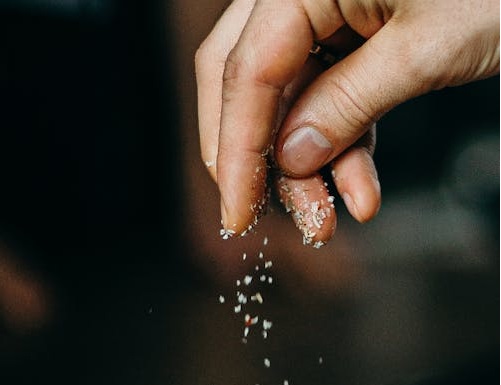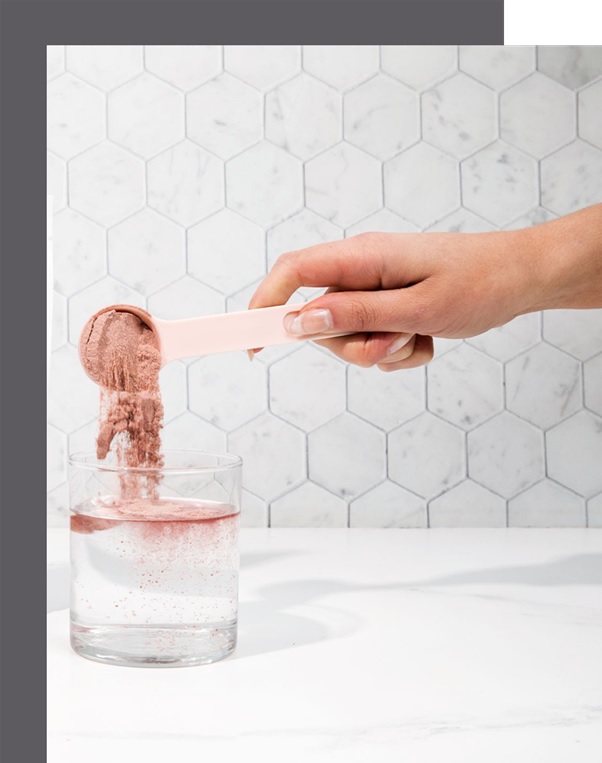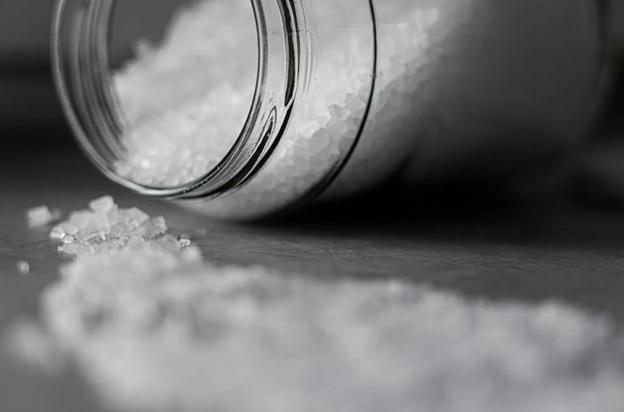Posted by Raw Revelations on Mar 29th 2024
“Cleaning Up” Misconceptions About Sodium in Clean Supplements
You know, sodium sure does get a bad rap. You’d think an element that you literally need to live would get more love and respect.
Instead, much of the news and popular media is full of claims that sodium raises blood pressure and thereby raises your risk of heart disease and stroke. As such, low-sodium and sodium-free snacks abound.
Enough of the fear mongering. Sodium is an essential nutrient that the body needs for basic muscular function as well as to regulate water and nutrient balances. There is no homeostasis without it.
So when you take a look at our “Hydrate” clean supplement and see the claim that there’s 3x the sodium, that should stimulate a sense of appreciation rather than concern.
Let’s clear this up.
Getting Salty About Sodium Misconceptions
Misinformation is a term that has been beaten to death over the last few years, and in a most disturbing turn of events, overwhelmingly by those that perpetuate the actual lies.
Take the FDA for a case in point. This governmental entity will stop at nothing to restrict salt intake in the diet. Just look at this recently published release (directly from the FDA!) that says as much.
The FDA seems to think that reducing sodium intake across the board will increase “health equity,” and reduce “preventable diet-related diseases.”
Make no mistake about it. Excessively high salt intake is not a good thing for your health or anyone’s. But make no mistake about this other truth from Paracelsus, the father of toxicology: “Sola dosis facit venenum,” or “the dose makes the poison.”
This is not a trite bit of witticism. It is a fact. Water will kill you, literally, if you drink too much of it too quickly. But it would (and should) strike the general public as absurdity if the FDA were to circumscribe the consumption of water among the public, in the interest of public health. We need water to live.

Just like salt. Now, to be fair, there are studies that suggest that excessive salt intake is implicated in a wide range of adverse health conditions, like those aforementioned. With that said, many of these studies are very selective in the data they choose to analyze - and which data they choose to omit.
The summary of the results published the AHA Journals even state overtly that there is a significant uncertainty with respect to sodium intake among participants in the study and reductions in blood pressure and cardiovascular disease. It does, at the same time, state that all modeled sodium reduction scenarios project an overall lower incidence of cardiovascular disease.
All the same, these studies are fairly restrictive in their scope and do not account for what might be termed in this scenario comorbidities (even though they technically are not) which are a diet high in ultra-processed foods and a sedentary lifestyle. Larger, more inclusive studies indicate that salt intake alone is not an indicator for the prevalence of high blood pressure (or subsequently, for cardiovascular disease). Rather, the aforementioned factors of sedentary living and ultra-processed foods are more reliable indicators of risk.
Consider also the Intersalt study, which accounted for 10,000 people from 48 global populations and found no correlation between sodium consumption and the prevalence of high blood pressure.
Granted, high sodium intake may not be good for health. But there’s a reason that we say sitting is the new smoking. We cannot look at these risk factors in isolation.
To put it blankly, sodium is the main cation in extracellular fluid (ECF). In layman’s terms, sodium is the electrolyte. We need it to maintain homeostasis, to regulate blood pressure, and for our muscles to work at all. Because of its osmotic action, sodium is also crucial for nutrient transport through plasma and across cell membranes.
Moreover, sodium (in contrast to what you might believe) is actually critical to hydration and blood plasma volume. Studies directly implicate sodium for its role in fluid retention and blood plasma volume restoration. That is, to be clear: sodium (in the right concentrations) actually helps your body absorb and retain water.
In fact, if you don’t get enough salt, that’s a dangerous situation all its own which sends your body into sodium retention. Interestingly the effects of low sodium are as concerning if not more than the red flags raised by the salt alarmists. Ironically, low sodium intake also causes high blood pressure, along with a number of other adverse health effects, including headaches, muscle cramps, insomnia, and even osteoporosis - among others.

That is the reason why when you see “3x the sodium” in our Hydrate clean supplement, it should be a reassurance rather than a cause for concern. This electrolyte drink mix actually enhances water absorption to support healthier hydration, while also supporting holistic wellness.
It’s also rich in antioxidants, MSM, and other vital electrolytes and nutrients like potassium and magnesium. You can learn more about this clean supplement here - or call us if you have more questions about its benefits, or on the benefits of sodium in the diet in general.

